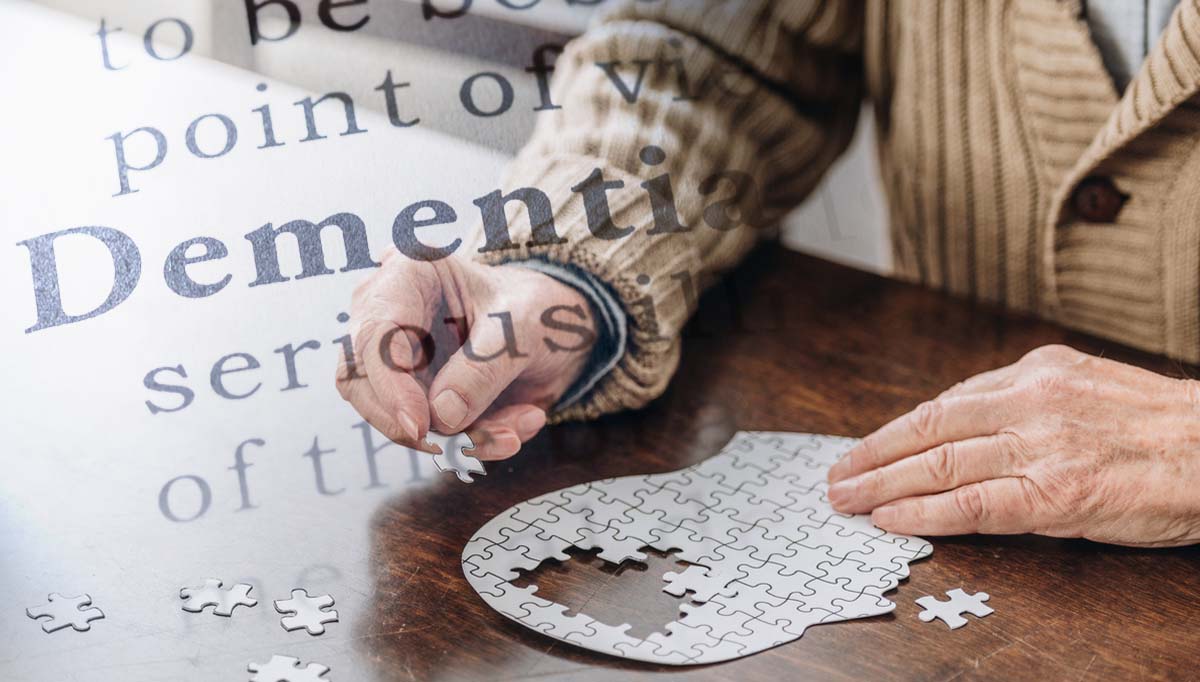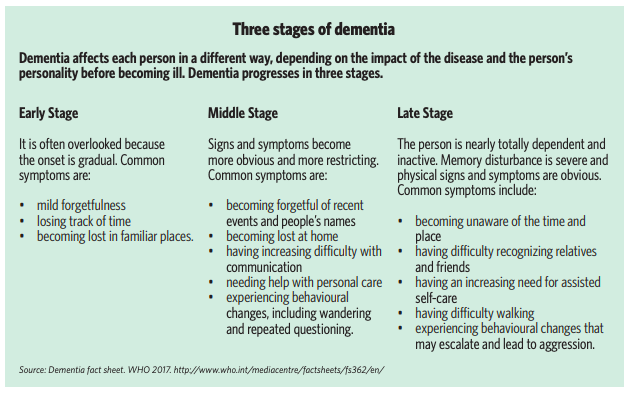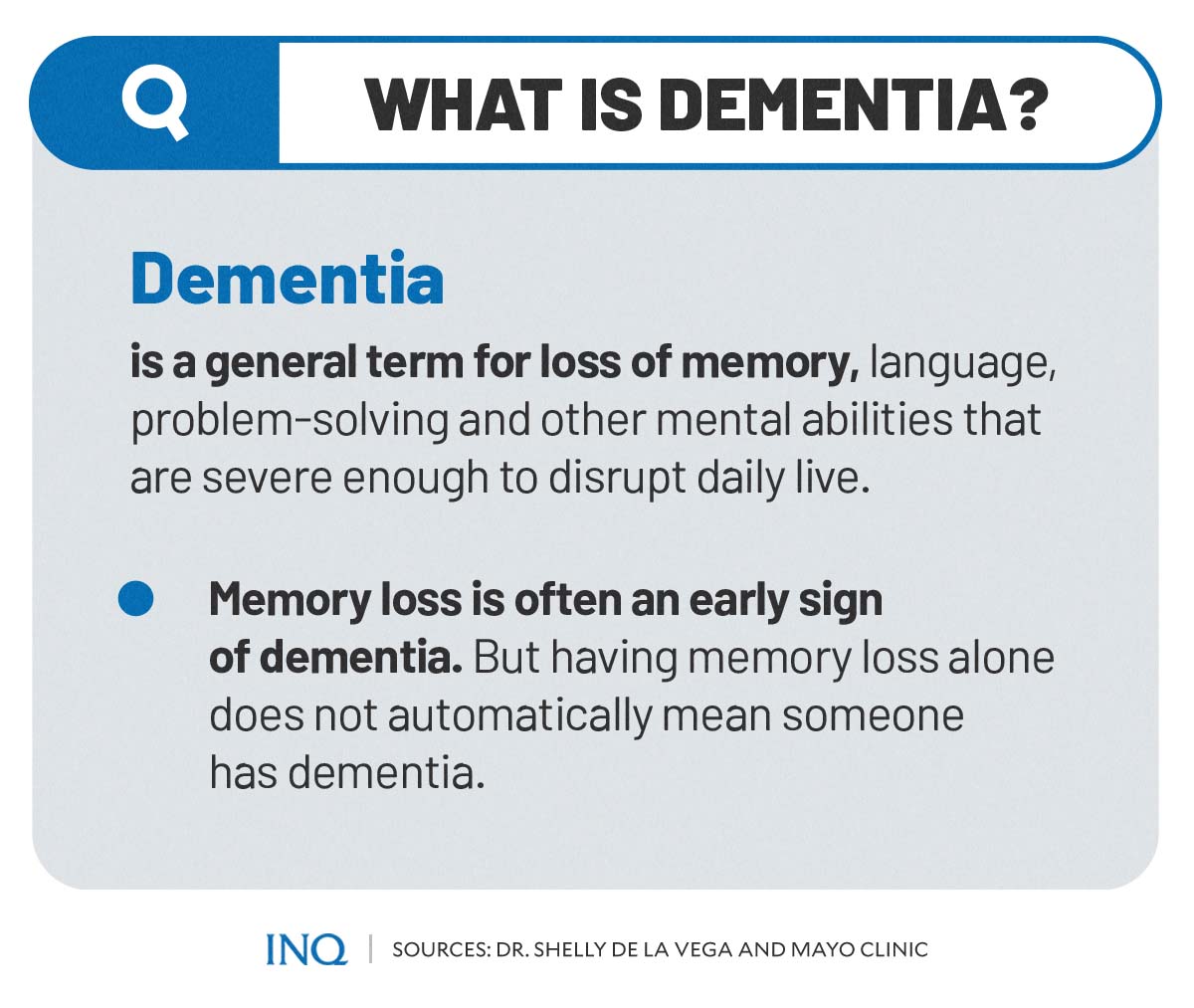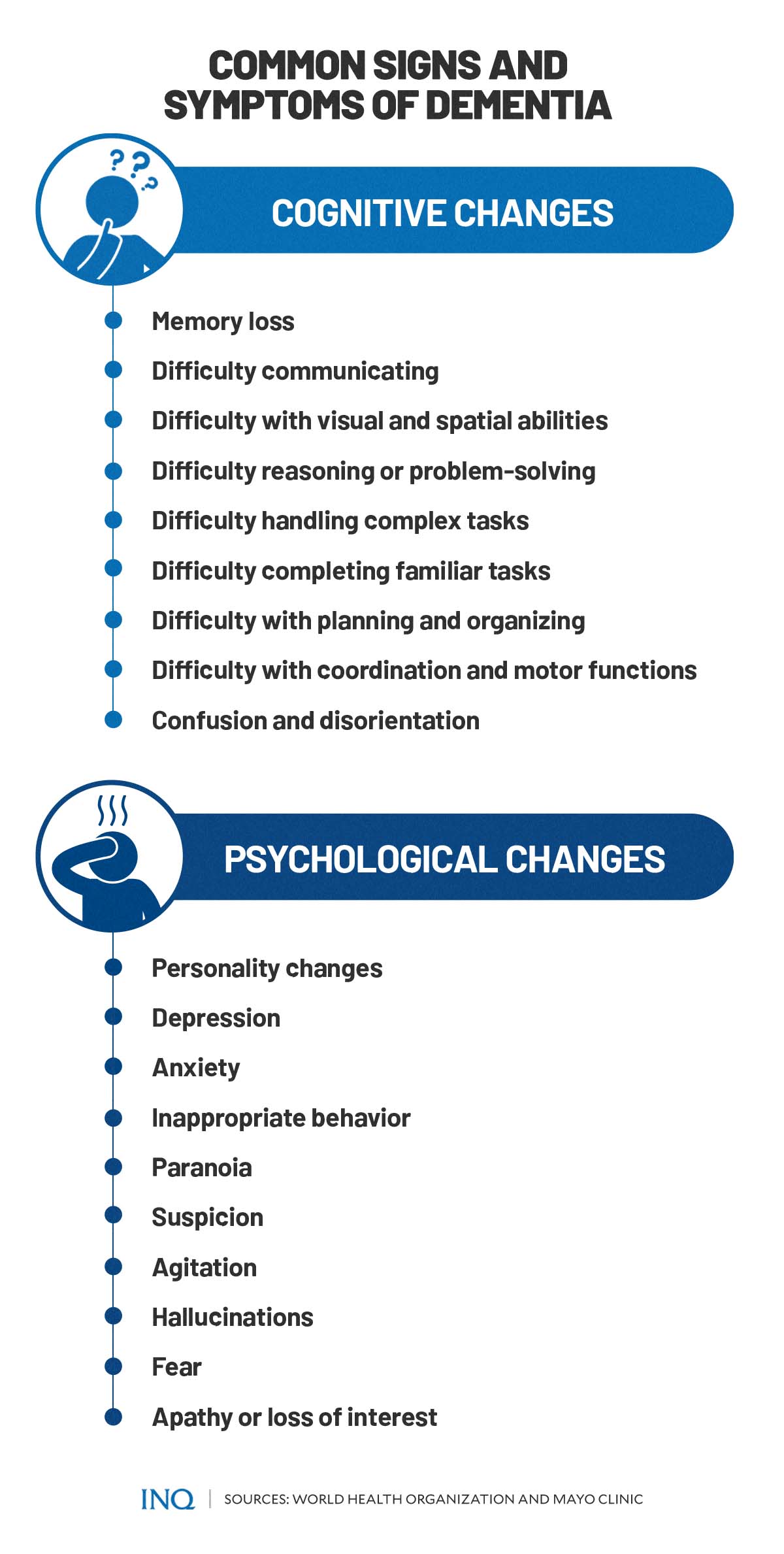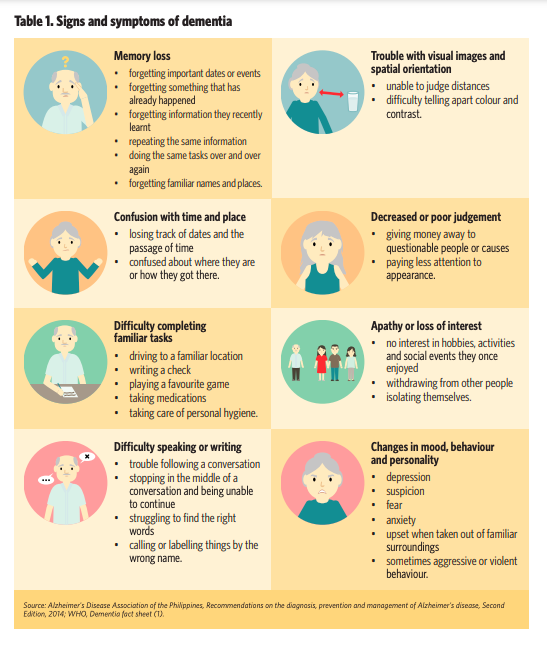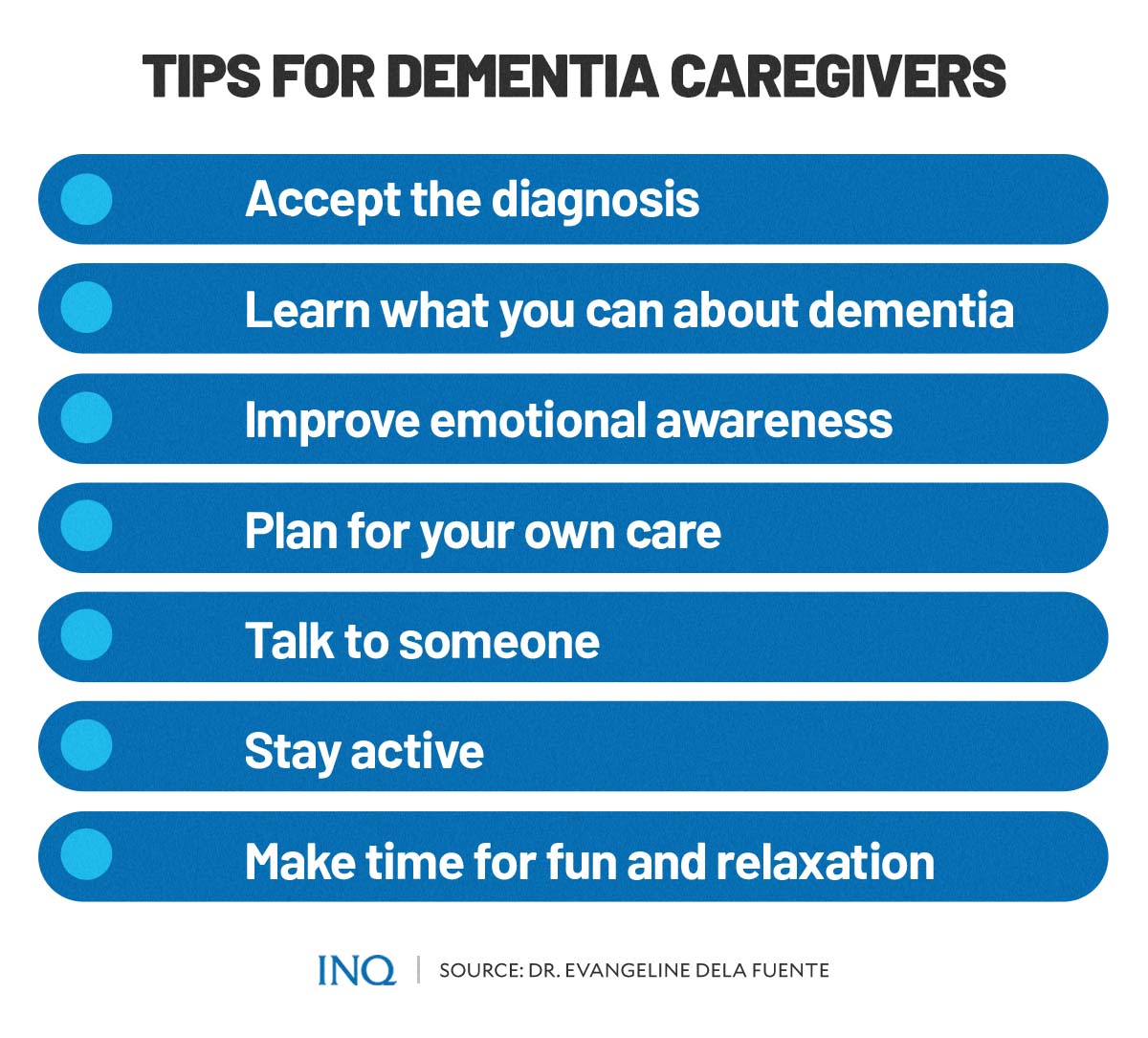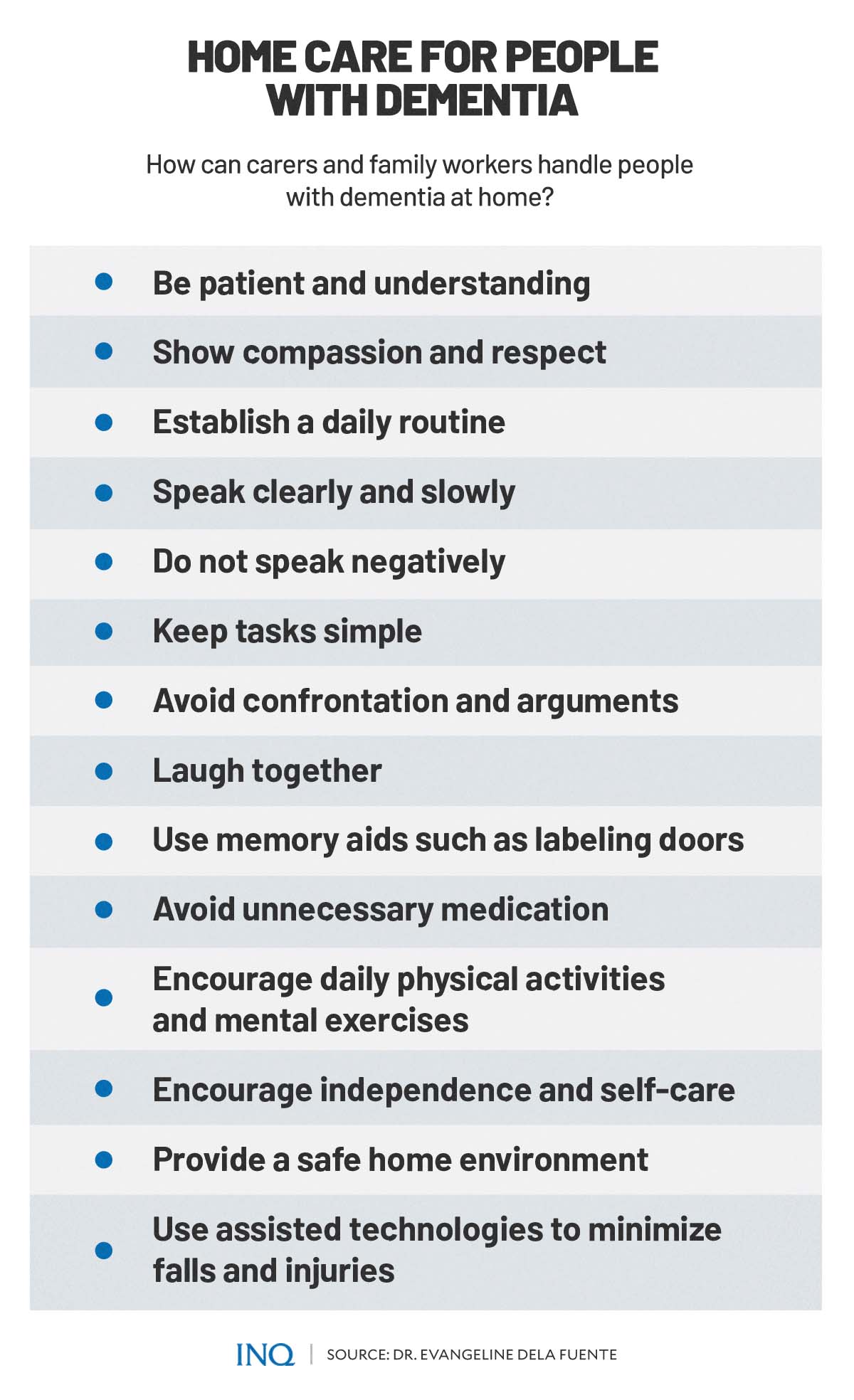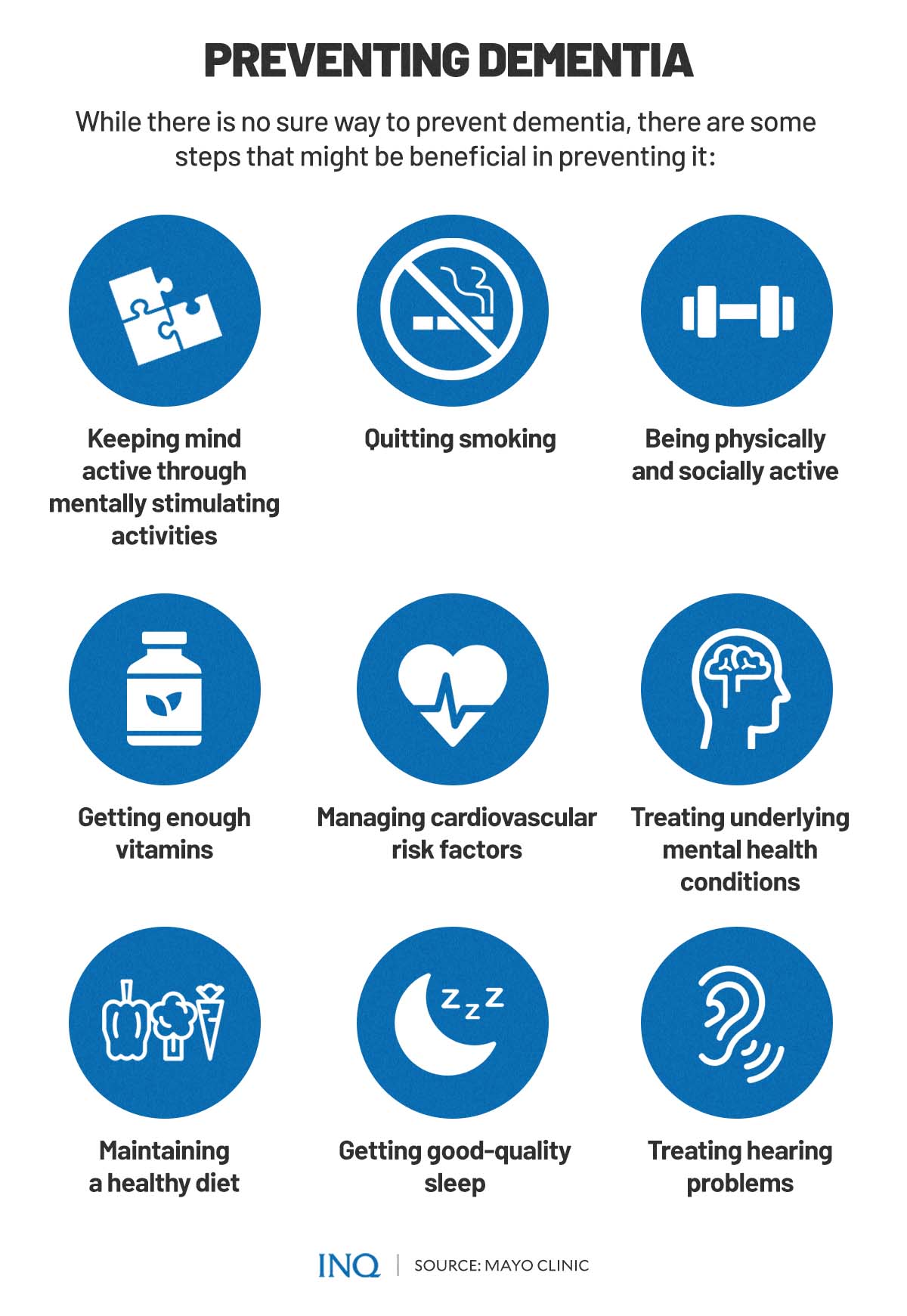Dementia amid COVID: Patients, carers both need care and support
MANILA, Philippines—“Pretty soon, everyone’s gonna be a stranger.”
That was one of the pivotal lines in the movie Here Today—a comedy-drama that follows the life of fictional veteran comedy writer Charlie Burnz (played by Billy Crystal) as he comes to terms with his rapidly progressing dementia—which gave a glimpse of what it is like to suffer from the condition, a neurological disorder that robs people of their memory.
Dr. Shelley de la Vega, director of the Institute on Aging of the National Institutes of Health (NIH), said dementia is an umbrella term for loss of memory, language, problem-solving, and other thinking abilities that are severe enough to interfere with daily life.
Over 55 million people across the globe are living with dementia, according to the World Health Organization (WHO). With the aging population, it is estimated that the number of people with dementia will rise to 78 million by 2030 and 139 million by 2050.
“Dementia robs millions of people of their memories, independence, and dignity, but it also robs the rest of us of the people we know and love,” said WHO director-general Tedros Adhanom Ghebreyesus.
Article continues after this advertisement“The world is failing people with dementia, and that hurts all of us,” he said.
READ: Number of people with dementia set to jump 40% to 78 million by 2030 -WHO
More than forgetfulness
As defined by WHO, dementia is a syndrome that is “usually of a chronic or progressive nature” and “leads to deterioration in cognitive function (i.e., the ability to process thought) beyond what might be expected from the usual consequences of biological aging.”
“It affects memory, thinking, orientation, comprehension, calculation, learning capacity, language, and judgment. Consciousness is not affected. The impairment in cognitive function is commonly accompanied, and occasionally preceded, by changes in mood, emotional control, behavior, or motivation,” it added.
Dementia generally involves memory loss. However, experiencing memory loss alone does not automatically mean a person has dementia.
“Memory loss is often one of the early signs of dementia. Having memory loss alone, however, does not automatically mean that a person has the condition,” said De la Vega in an episode of the “Stop COVID Deaths” online seminar hosted by the University of the Philippines (UP).
According to Mayo Clinic, symptoms of dementia vary depending on the cause. Some of the common signs and symptoms, however, include:
Cognitive changes, such as:
- memory loss
- difficulty communicating
- difficulty with visual and spatial abilities
- difficulty reasoning or problem-solving
- difficulty handling complex tasks
- difficulty completing familiar tasks
- problem with planning and organizing
- problem with coordination and motor functions
- confusion and disorientation
Psychological changes, including:
- personality changes
- depression
- anxiety
- inappropriate behavior
- paranoia
- suspicion
- agitation
- hallucinations
- fear
- apathy or loss of interest
The United States Centers for Disease Control and Prevention (US CDC) also noted that some signs which may point to dementia include:
- getting lost in a familiar neighborhood
- using unusual words to refer to everyday objects
- forgetting the names of close family members or friends
- forgetting old memories
- inability to complete tasks independently
Dementia, as explained by WHO, also progresses in three stages:
- Early Stage: Where onset of common symptoms such as mild forgetfulness, losing track of time, and becoming lost in familiar places is gradual and often overlooked.
- Middle Stage: During this stage, signs and symptoms become more evident and restricting.
- Late Stage: The person who has dementia becomes nearly dependent and inactive. They experience severe memory disturbance, and the signs and symptoms become apparent.
Dementia care during pandemic
During the COVID-19 pandemic, lockdowns and restrictions were imposed, pushing people living with dementia—which studies have shown are at a higher risk of contracting COVID-19—to stay inside their homes or facilities.
According to Dr. Michelle Anlacan, neurologist and president of the Alzheimer’s Disease Association of the Philippines (ADAP), most people with dementia initially felt happy with the lockdowns.
“Most persons with dementia were initially happy with the lockdown since they saw their whole family at home all the time,” she said.
“But as the weeks dragged into months, several issues arose, and the patients developed many [behavioral and psychological symptoms of dementia]: apathy, aggression, agitation, anxiety, irritability, hallucinations, sleep, and appetite changes.”
However, persons with dementia are also more prone to experiencing loneliness and depression during the pandemic. While dementia corrodes memory over time, Ancalan said it does not always mean those with the condition would no longer feel lonely or depressed.
The lockdowns have restricted people with dementia from enjoying some beneficial routine activities such as going out for walks.
“While there is still insight, they realize their failing memory, difficulties, and the things they can no longer do because of dementia. Over time, this insight is lost, and the patient will no longer be aware of what is happening,” she said.
“Nevertheless, it does not exempt them from loneliness and depression. In fact, it may be harder to address since they cannot express their thoughts clearly.”
READ: Caring for Lola Linda at home: Dementia amid the COVID-19 pandemic
In a study published in Nature Journal, Italian researchers found that 54.7 percent of people with dementia experienced worsened neuropsychiatric symptoms, with worsened agitation, apathy, and depression the most commonly observed.
According to De la Vega, when taking care of people with dementia amid the pandemic, there are some key things family members and caregivers should keep in mind. These things include:
- making sure that persons with dementia get vaccinated against COVID-19
- creating or providing a safe home environment to prevent falls and accidents
- encouraging mobility at home through daily walks while following health safety protocols
- ensuring that persons with dementia engage with reorientation, games, and other activities that help them have an active mind
- using visual reminders or cues on primary COVID-19 prevention, such as hand washing and wearing face masks
Meanwhile, last year, WHO released a toolkit that promotes the inclusion of people with dementia in society. The toolkit included tips and ways to manage and care for people with dementia amid the pandemic.
It also added a guide for carers and family members on how to work with people with dementia at home, which listed the following reminders:
- be patient and understanding
- show compassion and respect
- establish a daily routine
- speak clearly and slowly
- do not speak negatively
- keep tasks simple
- avoid confrontation and arguments
- laugh together
- use memory aids such as labeling doors
- avoid unnecessary medication
- encourage daily physical activities and mental exercises
- encourage independence and self-care
- provide a safe home environment
- use assisted technologies to minimize falls and injuries
Carers deserve care, too
Several studies conducted amid the pandemic have also found that not only persons with dementia can experience mental health issues and burnout.
A 2021 study titled “Impact of Social Isolation on People with Dementia and Their Family Caregivers” noted that family caregivers of people with dementia had faced a significant burden through social isolation due to the COVID-19 pandemic.
It can be manifested as a series of negative behavioral repercussions.
“Caregivers reported feeling more tired and overwhelmed during this period, and these symptoms were also influenced by the severity of dementia,” the study stated.
In a separate study, researchers said that “feelings of stress attempting to take care of their loved ones and the negative impact on the mental and emotional wellbeing of the loss of social support services were also reported in small sample size studies, suggesting the need for better psychological support.”
“Care partners felt less able to manage their wellbeing and reported burnout and worries about their increasing workload and the infection risk of patients with dementia,” another study emphasized.
Health experts said caregivers and family members or friends taking care of people with dementia—especially amid the lockdowns and restrictions during the pandemic—deserve the care they need to prevent burnout and mental health issues.
READ: A nurse on lockdown in a dementia village
To reduce stress, the WHO suggested in its dementia toolkit that caregivers and family members should:
- try to have a healthy lifestyle
- make time for hobbies and activities they enjoy
- do physical activities and exercise
- spend time with family and friends
- take breaks and vacations
- join social or interest groups
- go to religious services
- join a professional support group
“Providing care for someone with dementia can put one at increased risk for significant physical and mental health problems,” said Dr. Evangeline Dela Fuente, chair of the Department of Psychiatry and Behavioral Medicine of the University of the Philippines’ (UP) College of Medicine.
“Many dementia caregivers experience depression, high levels of stress, or even burnout. At the very least, they can experience sadness, anxiety, loneliness, and exhaustion,” she added.
Dela Fuente said it is crucial for family members and caregivers to accept the patient’s diagnosis.
“This is a very important step. Most of the time, persons with dementia cannot accept their diagnosis and the family members do the same, making things more difficult,” she said.
“Try to be strong. It’s a difficult diagnosis to accept, but once you embrace it, you can learn more about it,” she added.
Family members and caregivers should also be more aware or attuned to their emotions and feelings. These people, said Dela Fuente, should try to identify what is causing them to feel what they are feeling.
She said this would allow family members and caregivers to plan their care.
“You should give the amount of care you provide to persons with dementia to yourselves,” said Dela Fuente.
Some things to be considered, according to the psychiatrist, include:
- accepting the diagnosis
- learning what you can about dementia
- improving your emotional awareness
- planning for your care
- talking to someone
- staying active
- making time for fun and relaxation
Dementia and COVID-19
In February, Thailand’s Department of Medicine found that some COVID-19 patients experience symptoms of dementia after they have been cured.
According to Somsak Ankasil, director-general of the Department of Medical Services, some patients have shown dementia symptoms 1 to 6 months after being infected with COVID-19.
Anaksil said patients develop severe symptoms after acute infection with COVID-19. This causes a lack of oxygen which, as a result, may lead to depression and anxiety with neurological symptoms and dementia.
However, he said that symptoms could improve on their own over time.
READ: Dementia symptoms found in some COVID-19 patients after recovery
Citing a study published in the Alzheimer’s Dementia Journal, De la Vega said there are multiple means by which COVID-19 might lead to brain dysfunction. These include:
- direct brain infection, which causes encephalitis
- vasculopathy or vasculitis, otherwise known as inflammation in blood vessels in the brain
- systemic inflammation or cytokine storm
- autoimmune disfunction
- other organ damage
While researchers have found that COVID-19 may increase cognitive impairment, does it mean it can cause dementia?
“Not necessarily,” said De la Vega.
“But, it can possibly accelerate the diagnosis of dementia after a COVID infection,” she added.
When it comes to preventing dementia, Mayo Clinic noted that there is “no sure way” yet to avoid getting the condition. However, some steps might be beneficial in preventing it, such as:
- keeping the mind active through mentally stimulating activities
- being physically and socially active
- quitting smoking
- getting enough vitamins
- managing cardiovascular risk factors
- treating underlying mental health conditions
- maintaining a healthy diet
- getting good-quality sleep
- treating hearing problems
READ: Preventing dementia starts in childhood
TSB
For more news about the novel coronavirus click here.
What you need to know about Coronavirus.
For more information on COVID-19, call the DOH Hotline: (02) 86517800 local 1149/1150.
The Inquirer Foundation supports our healthcare frontliners and is still accepting cash donations to be deposited at Banco de Oro (BDO) current account #007960018860 or donate through PayMaya using this link.
